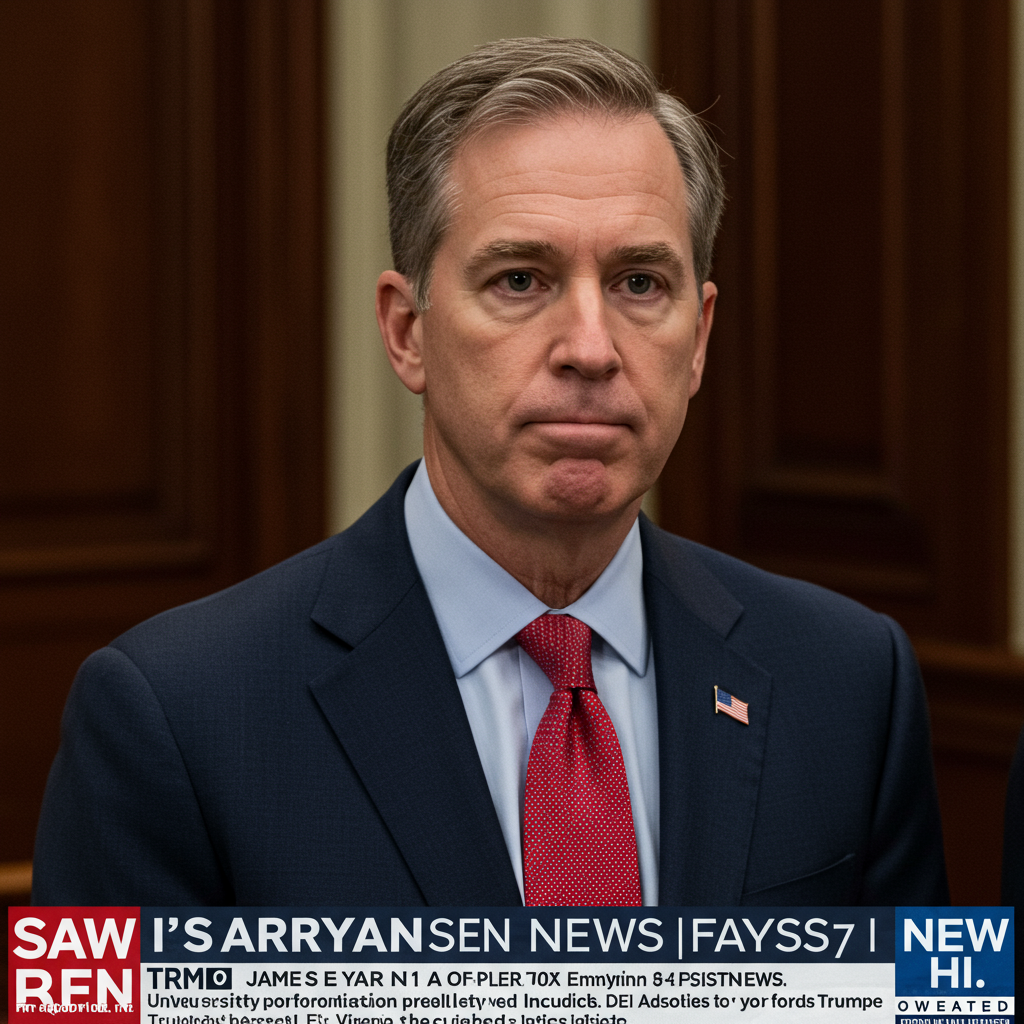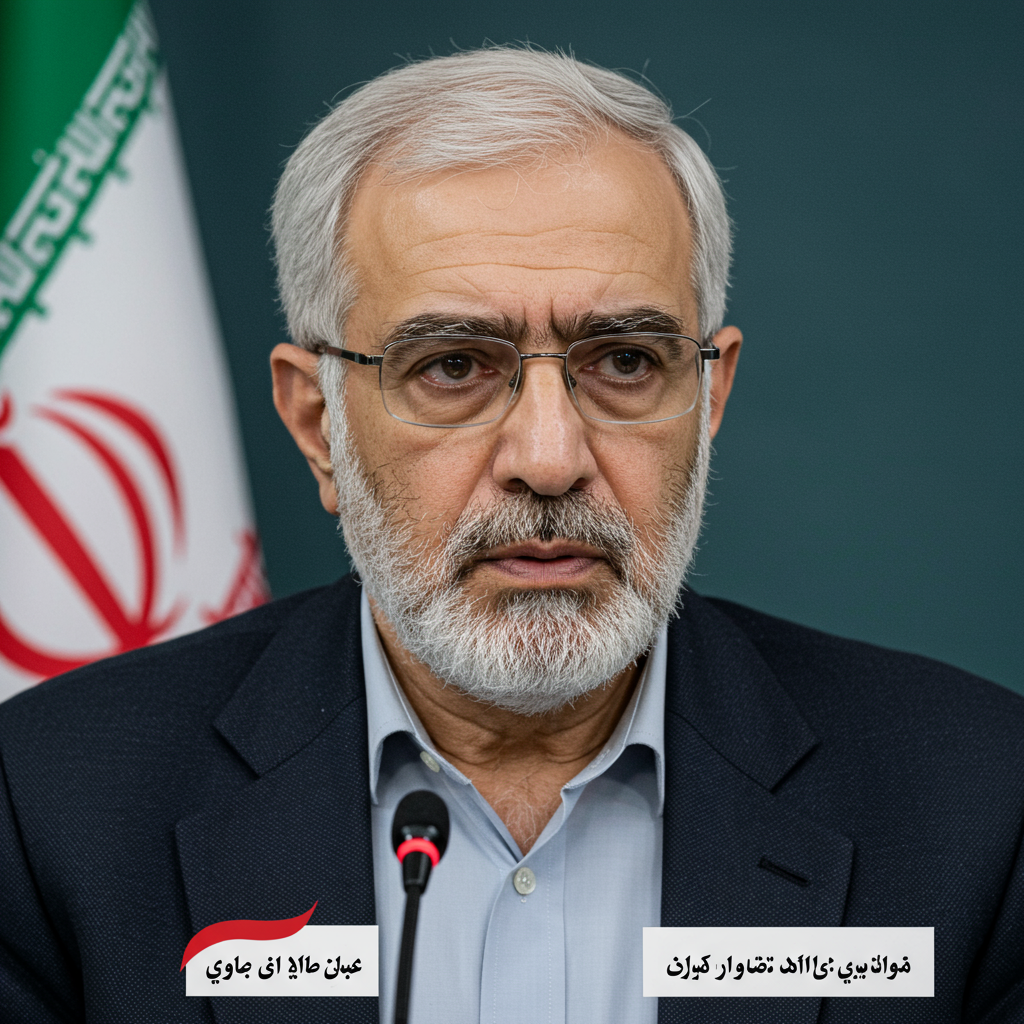A major leadership change has rocked the university of Virginia (UVA). Its president, James E. Ryan, has resigned. This departure comes under significant pressure from the Trump administration. Two people familiar with the situation confirmed this development.
The core conflict centers on the university’s diversity, equity, and inclusion (DEI) policies. The Justice Department reportedly believed UVA was negotiating in “bad faith.” They sought an end to these specific school programs.
President Ryan Cites Pressure from Federal Government
In a letter to the university community, Ryan explained his difficult decision. He stated his inclination is always to fight for his beliefs, particularly for UVA. However, he felt unable to make a unilateral decision to battle the federal government. Doing so simply to keep his job seemed impossible.
Ryan described the potential fight as “quixotic.” It would appear “selfish and self-centered.” He warned of severe negative outcomes for the university. These included potentially hundreds of employees losing their jobs. Researchers could lose crucial funding. Hundreds of students might lose financial aid or have visas withheld. Ryan called the decision “excruciatingly difficult.” He was heartbroken to leave in this manner.
He had initially planned to step down later, specifically the following academic year. These plans were for reasons unrelated to this dispute. They involved completing a capital campaign and implementing strategic initiatives. Given the circumstances and recent conversations, he felt compelled to resign immediately.
University rector Robert Hardie accepted Ryan’s resignation. He acted on behalf of the board. In a statement, Hardie called Ryan “an extraordinary president.”
DOJ Inquiry Targets UVA’s Diversity Practices
The pressure on President Ryan reportedly stemmed from a Department of Justice investigation. This inquiry focused on UVA’s DEI programs. Sources indicated the DOJ pressured Ryan as part of a settlement agreement. The government department believed UVA improperly prioritized race in admissions and other student life aspects. These practices were described as “widespread throughout every component and facet of the institution.”
A letter from a DOJ official to the university’s oversight board conveyed urgency. It reportedly stated, “Time is running short, and the department’s patience is wearing thin.” Reports suggest the administration would cease its pressure if the university’s president resigned. This marked a significant escalation. News reports cited by MSNBC and The New York Times highlighted this as potentially the first time the administration pushed a university to remove its leader.
Conservative legal groups played a role in the scrutiny. Entities like America First Legal, founded by former Trump aide Stephen Miller, had filed complaints. They argued UVA failed to fully eliminate DEI programs. This was despite the university’s Board of Visitors voting to dissolve its DEI office in March. Critics claimed the university merely rebranded policies using euphemisms.
The DOJ’s investigation followed complaints about UVA’s handling of DEI. Initial compliance deadlines were set, then extended. After further complaints of non-compliance, a final letter was sent in mid-June. Reports indicated this letter laid out demands and warned of consequences. Government lawyers, including some UVA alumni, reportedly found UVA considered race in admissions and student benefits.
Assistant Attorney General Harmeet Dhillon later issued a statement. She welcomed leadership changes in higher education that comply with federal civil rights laws. She noted the agency’s “zero-tolerance policy toward illegal discrimination.” Neither the White House nor the DOJ issued public statements on the specific demands or the resignation.
Broader Context of Trump Administration and Higher Education
This event fits into a larger pattern. The Trump administration has actively challenged higher education institutions. President Trump has sought to influence schools he views as ideologically left-leaning. This campaign includes cutting off grants, targeting tax exemptions, and proposing tax increases on endowments. There have also been efforts to block international students and target accreditation. Political scientist Dan Drezner has argued the administration is actively “trying to kill American higher education.”
Targeting DEI programs has been a specific focus. President Trump campaigned on ending “wokeness” in education. An executive order in January aimed to end federal funding for institutions with DEI programming. It accused schools of indoctrinating students in “radical, anti-American ideologies.” The Department of Education has launched investigations alleging diversity initiatives discriminate against white and Asian American students.
Institutional responses have varied. Some schools dismantled DEI offices and ended related programs. Others maintained their policies. UVA itself had already taken steps. Its governing body voted in March to close the DEI office and end related policies in admissions, hiring, and financial aid. This action was celebrated by Republican Governor Glenn Youngkin. However, conservative critics like America First Legal argued these changes were superficial. They asserted public universities accepting federal funds cannot violate the Constitution or impose ideological tests.
The pressure on UVA, a public institution, highlights a key dynamic. While the White House has targeted elite private schools like Harvard, public universities are often more vulnerable. They rely heavily on taxpayer funding. Despite having a relatively large endowment for a public school, UVA’s reliance on government funds made it susceptible to financial leverage. Private universities with massive endowments can often weather financial threats better.
Reactions and Implications
The news of Ryan’s resignation drew sharply divided reactions. Robert Hardie, the UVA board chair, expressed “profound sadness.” He praised Ryan’s leadership. In contrast, the Jefferson Council, a conservative alumni group that had pushed for Ryan’s departure, lauded the decision. They called it a “necessary and welcome step” toward restoring intellectual diversity and depoliticizing the university.
Faculty, students, and other demonstrators protested the resignation. They accused the government of overreach. The UVA faculty senate also condemned the DOJ’s demands.
Political reactions split along partisan lines. Virginia’s Democratic Senators, Mark Warner and Tim Kaine, issued a joint statement. They called the DOJ’s demand “outrageous” and a “mistake.” They argued decisions about UVA leadership belong solely to the Board of Visitors. Governor Glenn Youngkin, who appointed many current board members, thanked Ryan for his service. He expressed confidence in the board’s ability to find a new leader.
Higher education experts voiced strong concerns. Ted Mitchell, president of the American Council on Education (ACE), called the administration’s action “thuggery.” He described it as a “dark day for the University of Virginia, a dark day for higher education.” He warned the administration seemed intent on using “every tool” to control higher education. Peter McDonough, ACE’s VP and General Counsel, worried about the executive branch using “purse strings” to micromanage universities. He called Ryan’s resignation a potential “tipping point” for institutional autonomy. He argued the strength of the US higher education system is now “at risk.”
Ilya Shapiro of the Manhattan Institute offered a different view. He argued Ryan’s resignation was needed. He suggested there was “some doubt” about UVA’s compliance with pledges to dismantle DEI structures. He stated the DOJ inquiry sought to ensure people were not treated differently based on race. New leadership made sense, he argued, partly because Ryan was deeply involved in DEI programming previously.
McDonough pushed back against this perspective. He noted there was “no outcome to any investigation” of UVA yet. He felt Shapiro’s characterization sounded like a “verdict without a trial.” He stressed that having DEI branding does not make a university illegal. It certainly should not force a major university president’s resignation before an investigation concludes.
This quiet, targeted pressure on UVA marks a distinct approach. It differs from more public battles with private universities. Experts see it as a new front in the administration’s efforts. It highlights the vulnerability of public university leaders to federal and state political pressure. This is especially true on politically charged issues like DEI. It raises significant questions about the future independence of American higher education.
Frequently Asked Questions
Why did the University of Virginia President resign?
UVA President James E. Ryan resigned under pressure from the Trump administration. This pressure stemmed from a Department of Justice (DOJ) investigation into the university’s Diversity, Equity, and Inclusion (DEI) programs. Reports indicate the DOJ believed UVA was not sufficiently ending its DEI efforts and demanded Ryan’s resignation as part of a potential resolution, warning of consequences if he refused.
Which groups supported or criticized the UVA President’s resignation?
Reactions were polarized. Conservative groups like the Jefferson Council and America First Legal supported the resignation, viewing it as necessary to remove DEI influence. Virginia’s Republican Governor Glenn Youngkin also thanked Ryan and expressed confidence in the board. Critics, including UVA faculty, students, Virginia’s Democratic Senators Mark Warner and Tim Kaine, and leaders from the American Council on Education, strongly condemned the move, calling it government overreach and a threat to academic independence.
What are the potential implications of this resignation for other universities?
Higher education experts view this event with significant concern. They worry it signals a shift where political pressure, both federal and state, could increasingly be used to force leadership changes and dictate policies at public universities, particularly regarding politically sensitive issues like DEI. This could undermine the autonomy and traditional governance structures of institutions, potentially risking federal funding and the overall health of the sector.
This incident involving the University of Virginia is seen by many as a test case. It demonstrates the federal government’s willingness to use its leverage. This could set a precedent for how politically charged disputes are handled in higher education moving forward. The autonomy of universities, particularly public ones, appears increasingly under scrutiny.
Word Count Check: 1110


